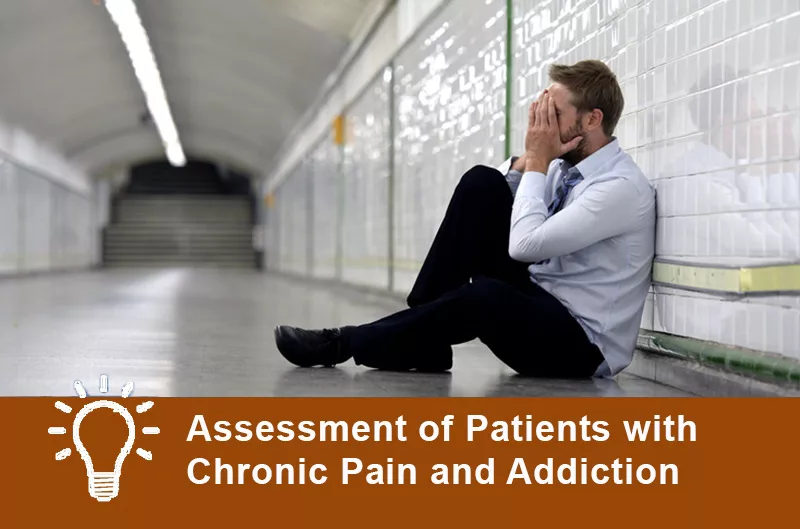It can be challenging to manage chronic pain, even more so when our patients suffer from addiction, says Michael McGee, MD, Chief Medical Officer, The Haven at Pismo, Avila Beach, CA. We can find ourselves walking a tightrope between the risk of relapse due to the inadequate treatment of pain, and the risk of relapse due to the use of opioid analgesics.
In an the article "Treating Chronic Pain When There’s Addiction: A Primer" from The Carlat Addiction Treatment Report, Dr. McGee offers the following advice on assessing patients for pain:
In an the article "Treating Chronic Pain When There’s Addiction: A Primer" from The Carlat Addiction Treatment Report, Dr. McGee offers the following advice on assessing patients for pain:
- Since chronic pain is multifaceted, its assessment should be too. Be sure to obtain consent to speak to collateral providers and supports. You’ll want to gather the findings of other clinicians and the observations and concerns of loved ones.
- Assess the nature of the pain. Ask questions about onset, what the pain feels like, its severity, and what makes the pain worse.
Assess how the pain impacts functioning. Ask how the patient copes with it. How does the pain affect daily activities, including work, household responsibilities, socializing with friends, sex, and having fun? - Further explore how the pain makes the patient feel. Does the patient feel irritable, frustrated, or hopeless? Be sure to ask how the pain is affecting sleep and mood. Listen for underlying negative beliefs about the pain, such as the idea that life is not worth living or that there is nothing that can be done about the situation. Is the patient willing to accept the pain and pursue a fulfilling life? Is there a sense that the pain can be addressed through the help of others? Degrees of acceptance and self-efficacy will inform and impact the treatment.
- Ask about the impact of pain on a patient’s recovery. Is the patient sober? Having cravings? Is the patient adhering to a recovery program, or is pain getting in the way? Is the patient continuing to reach out to recovery supports, or retreating into isolation?
Assess all other cooccurring conditions and disorders. Include other psychiatric illnesses, medical conditions, and neuropsychiatric impairments. - Assess environmental contingencies. Does the family reinforce wellness behavior or illness behavior? Are there vocational, financial, or insurance/legal incentives or disincentives for being in pain? What will be the consequences of resuming healthy functioning? These factors can significantly impact pain severity and associated disability.
- In addition, conduct or obtain a physical exam. Look for relevant associated signs of a pain disorder and for signs of a substance use disorder, such as track marks, hepatomegaly, residuals of skin infections, and nasal and oropharyngeal pathology.
In your mental status exam, take note of whether the patient is focused on medications, particularly opioids. Look for somatic preoccupation. Assess both mood and the presence of suicidal ideation, intent, plans, and behaviors. Assess cognition, as impairments will affect the treatment.


_-The-Breakthrough-Antipsychotic-That-Could-Change-Everything.webp?t=1729528747)



